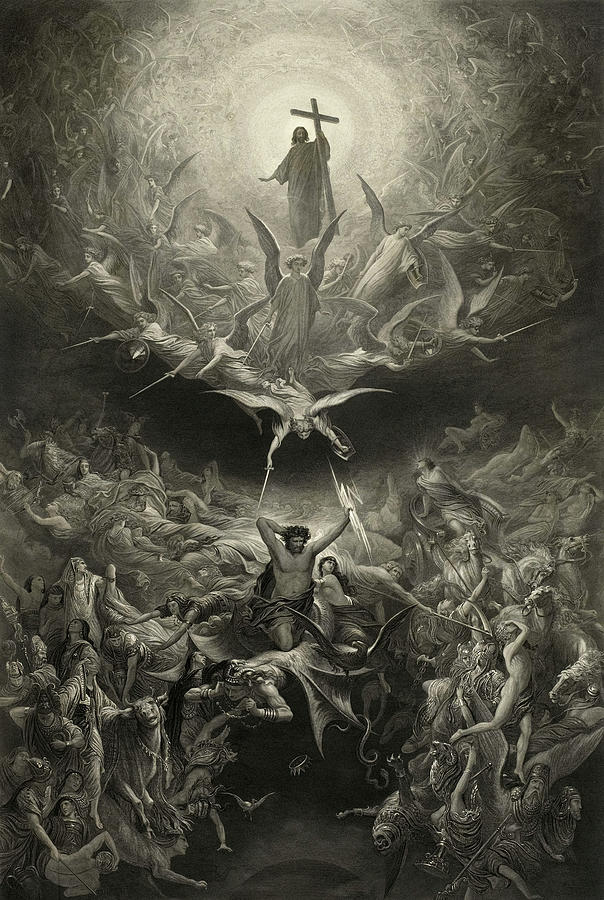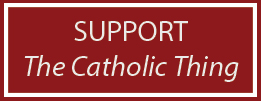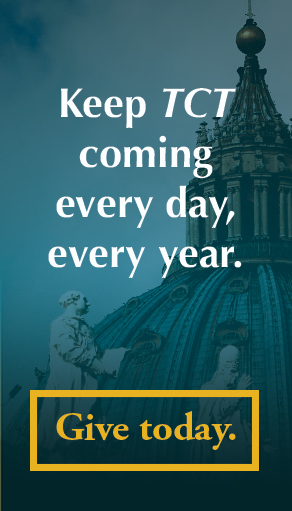One of the most remarkable features of the Gospels is how Jesus effortlessly tosses off unforgettable sayings, the kinds of phrases only the greatest thinkers and poets produce – and only rarely. As the American writer Randall Jarrell once put it, “ A good poet is someone who manages, in a lifetime of standing out in thunderstorms, to be struck by lightning five or six times; a dozen or two dozen times and he is great.” Jesus was – clearly – much more than a poet. But it’s still striking that he could say more memorable things in a few minutes on ordinary days than any figure in history. Pity the myopic Biblical scholars – or the many people now influenced by them – who believe that a gaggle of fishermen, tax collectors, and itinerant preachers just made a lot of it up.
Christ’s often-simple sayings bulk so large that it’s taken millennia of theologians, philosophers, saints, mystics, martyrs, priests, bishops, and popes even to begin to grasp what He said. And yet, at the same time, His words have spoken to the hearts of average people, not only in his day, but over ages, in “diverse” cultures, despite what seemed impossible obstacles. Aquinas thought one of the greatest Christian miracles was how a few humble men from a cultural backwater were able to convert the greatest empire (Rome) then in existence. A matter of sheer historical fact – and he lived before the Faith spread to the Americas, Africa, Asia, and the whole world.
That all this seems threatened now, and on every front, is reassuring in one way; it suggests that as dark as things seem at present, in both the Church and the world, the Gospel has shown itself to have an unsuspected power that cannot be predicted. It has always exceeded what we might “reasonably” expect. And could do so at any moment, even today.
In another way, it’s right to be worried because the present age seems not only mired in the usual human tangle of sin and ignorance. Our Western non-culture seems hell-bent on not only opposing but wiping out the very memory of the best that made us who we are.
Sometimes it paints the past as an unrelieved tale of oppression – slavery, patriarchy, colonialism, “white privilege,” etc. But those charges, partially true though some are, are not being used merely to criticize elements of the past, but to obliterate knowledge of our tradition – a priceless combination of Greco-Roman, Biblical, medieval, Renaissance, Enlightenment, and modern elements. Our schools and universities often give the impression that it’s not worth teaching, not even accurately remembering, it. All “cultures” are now affirmed – except for one. And that has never happened before.
When things look very bad, there’s a natural human temptation to call the situation unprecedented. The present age really does seem so. But it’s worth recalling one of Jesus’ sayings that may seem to refer to the past, but like everything about him speaks to us as well: “To what shall we compare the present generation?” (Mt. 11:16) In his time, he says, people neither rejoiced properly at good news nor mourned bad news. Their view of things – and therefore their reactions to them – were distorted.

The present age, too, shows strange reactions to things – of a specific kind worth noting. Chesterton had already seen part of it a century ago:
When a religious scheme is shattered (as Christianity was shattered at the Reformation), it is not merely the vices that are let loose. The vices are, indeed, let loose, and they wander and do damage. But the virtues are let loose also; and the virtues wander more wildly, and the virtues do more terrible damage. The modern world is full of the old Christian virtues gone mad. The virtues have gone mad because they have been isolated from each other and are wandering alone. Thus some scientists care for truth; and their truth is pitiless. Thus some humanitarians only care for pity; and their pity (I am sorry to say) is often untruthful.
That accounts for a lot of current “wokeness” and “virtue signaling.” It’s long been part of our understanding of moral questions that, as Augustine put it, evil is the absence of some good, either something that should be there and isn’t, or it is but to too great or too little a degree. In other words, it’s a departure from the full order of our universe. The Church is “catholic” precisely because it’s “universal,” Greek kata-holos, “according to the whole.”
The “trans” craze is a perfect counter-example. It’s more than radical groups and individuals pushing the mutilation of children under the guise of “gender-affirming care.” One virtue –compassion for gender-confused young people – has swollen to such monstrous proportions that it has eclipsed everything from the simple facts of biology to thousands of years of human experience. Just think of what it means when trained medical personnel speak of “gender assigned at birth,” as if the ordinary observation that a newborn being is a boy or girl is a mere convention by some unnamed, and perhaps biased, assigner.
This is easy to satirize, except that children are being surgically disfigured or pumped full of chemicals to prevent their bodies from developing as they naturally want to do.
Which is why I think we have to add to Chesterton’s virtues gone mad that there’s a demonic element, increasingly evident, in all this.
The Devil has no goods of his own to sell, so to speak. He can only use the goods created by the Creator to try to make us disordered. One of the hard tasks assigned to Christians in the present generation is to resist and name disordered virtues. To withstand slurs about bias and hate, by affirming the fullness of truth – and love. No small or easy task. But the one to which Divine Providence has decreed we are called.

















